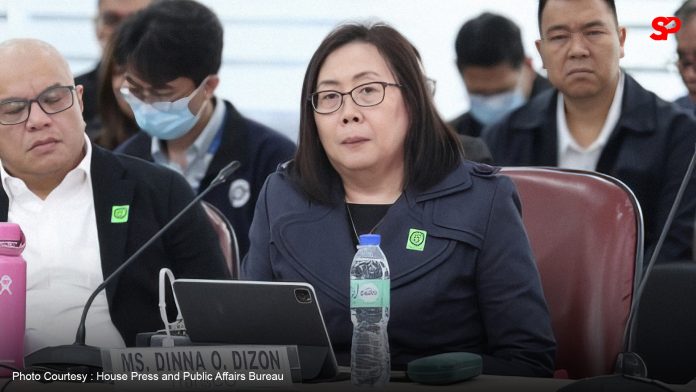MANILA – State-owned National Transmission Corporation (TransCo) on Thursday cited the significant delays in transmission projects by the National Grid Corporation of the Philippines (NGCP) as key factors driving up electricity costs and causing inefficiencies that affect millions of Filipino consumers.
During a hearing of the House Committee on Legislative Franchises, TransCo Vice President Dinna Dizon said project delays and regulatory practices, particularly the “as spent” approach, have contributed to rising transmission rates and compromised grid performance.
Dizon noted that NGCP completed only 29 percent of its targeted projects—equivalent to 75 out of 258 planned projects—while utilizing just 10 percent of its allocated capital expenditures (CAPEX).
“NGCP completed much of the other projects within 2023–2024, or beyond the 4th regulatory period. There are projects with maximum delay exceeding nine years. Similarly, 58 ongoing projects, or 75 percent, are also delayed, with the maximum delay again for some exceeding nine years,” Dizon told lawmakers.
Dizon added that the Energy Regulatory Commission (ERC) had penalized NGCP PHP15.8 million for unjustified delays.
Citing the “as spent” approach in calculating the company’s maximum annual revenue (MAR), Dizon explained that the method has driven up transmission rates by around PHP0.80 per kilowatt-hour.
The ERC’s majority decision allows NGCP to recover capex expenses once incurred, regardless of whether the projects are commissioned or operational.
“The adoption of the ‘as spent’ approach results in a higher transmission rate by 80 centavos per kilowatt hour, give or take a few,” she said.
She also highlighted the broader economic impact of project delays, including missed opportunities to integrate renewable energy sources into the grid.
“There is also an indirect impact, like the cost to the economy. Higher electricity costs may be a result of using more expensive alternative power sources because the lines are not available to deliver the cheaper sources,” she said.
Dizon called for accurate rate-setting practices to avoid burdening consumers with unnecessary costs, stressing the need to include only completed and efficient projects in the Regulatory Asset Base (RAB).
National security risks
Former TransCo president Melvin Matibag, meanwhile, warned lawmakers of potential national security threats posed by NGCP operations, citing its reliance on Chinese technology and the limited oversight of its facilities by the Philippine government.
During the same hearing, Matibag expressed alarm over NGCP’s use of the SCADA (Supervisory Control and Data Acquisition) system supplied by NARI Group Corporation, a Chinese IT infrastructure provider.
“I just like to remind everyone, pinag-uusapan natin dito presyo, 3 percent ba, 10 percent ba, ganito ang binayaran. But more than that, this is something that should be a concern of everyone and that is the national security and national interest of our country (We are discussing whether if it’s 3 percent or 10 percent, but more than that, this should concern everyone because it involves national security and the national interest of our country),” Matibag said.
Matibag revealed that the SCADA system had been accessed remotely on two occasions.
“There was already an incident na nagkaproblema ang power grid natin. It was resolved remotely. Twice already na nangyari. So ano ibig sabihin nito? Remotely pwede gawin (There was already an incident where our power grid encountered problems, and it was resolved remotely. This has happened twice already. What does this mean? It can be done remotely),” Matibag said.
He also lamented that TransCo is barred from inspecting NGCP’s operations.
“Ngayon lamang po ako nakakita na kami ang may-ari ng bahay at gusto mong tingnan kung anong ginagawa sa bahay mo ay hindi kayo pwede pumasok (This is the first time I’ve seen a situation where we own the house, but we’re not allowed to inspect what’s happening inside),” he said.
During a previous hearing, NGCP Assistant Vice President for System Operations Clark Agustin assured the public that there is no single switch capable of shutting down the grid, allaying concerns about NARI’s involvement in NGCP operations. (PNA)

